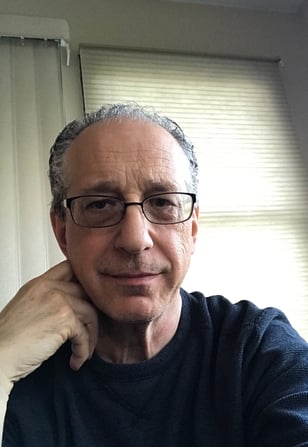Peer Spotlight: David H. - Blog - Reeve Foundation
Two months after his wife, Lucy, got sick, David found himself in a very dark place.
“I was falling apart. It was so hard to face each day and not want to run away,” said David H. “I had been off work for weeks. I felt panicked. How would I pay for all this? What would our lives become? I was a mess. I did not know how to move forward.”
In March 2018, after two days of flu-like symptoms, Lucy began to severely decline. She was unable to stand. In the ICU, she was diagnosed with sepsis, kidney failure and encephalopathy. After several days in the hospital, Lucy could not move her legs and had no feeling in her lower body. An MRI discovered osteomyelitis in the thoracic spine. An abscess had formed in the spinal canal, compressing the spinal cord. Emergency surgery removed six inches of bone from T5-T12 of her spine.
 Lucy spent a month in rehabilitation at Shirley Ryan Ability Lab in Chicago and made little progress. With her discharge imminent, David found it difficult to find a skilled nursing facility that could deal with a spinal cord injury.
Lucy spent a month in rehabilitation at Shirley Ryan Ability Lab in Chicago and made little progress. With her discharge imminent, David found it difficult to find a skilled nursing facility that could deal with a spinal cord injury.
“The surgeon had warned us that there would be lasting effects, including potential paralysis, but we were not prepared for this,” said David. “Neither of us are very strong, and we are both very emotional. There was a lot of frustration. I had no one to talk to, and my family didn’t understand. That’s when I reached out to the Reeve Foundation’s Peer & Family Support Program.”
David had already used many of the Reeve Foundation’s resources. He started searching the Reeve Foundation website soon after his wife’s surgery. He ordered the Paralysis Resource Guide, watched several of the Nurse Linda's webinars and used various other resources.
“The Reeve Foundation offers great practical advice, and the Paralysis Resource Guide is one of the best resources available. Initially I felt awkward about reaching out to get a mentor, but I am so glad I did,” said David who was connected with a fellow spouse caregiver, Larry Eastman, as a mentor. Eastman’s wife is living with progressive multiple sclerosis. “It was so helpful to talk to someone with a similar experience but who was not emotionally involved in my family.”
David and Eastman spoke about once a week. Eastman would offer helpful information about equipment, home modifications and personal care, but often, he would just listen.
“The process felt like someone had thrown a life preserver to me. Larry gave me a rope to grab when I was drowning. At first, we talked a lot about the nuts and bolts of what to do, and then, over time, we became friends. Our conversations would be about caregiving, but we also talk about other things that are happening in our lives.”
Gradually, Lucy started to get better. She improved from taking steps to using a walker to walking on her own more confidently. She is now able to drive and can participate in daily life more independently.
“Even though my wife continues to improve, Larry and I still talk about once a month,” said David. “I think I’ve actually come to help him too. We have a mutual sense of support and a unique bond. Larry is very strong and so positive, but I think he gets something out of talking to me too.”
David worries about the possibility of slipping back into that dark place and plans to continue to stay in touch with Larry.
“You take for granted that you can find help, but that help isn’t always that easy to find. I’m so glad the Peer program is available,” said David. “You need to accept the idea that bad things happen and every day I feel really lucky. Lucky that my wife to getting better and lucky that I have Larry’s guidance and support.”
Join Our Movement
What started as an idea has become a national movement. With your support, we can influence policy and inspire lasting change.
Become an Advocate